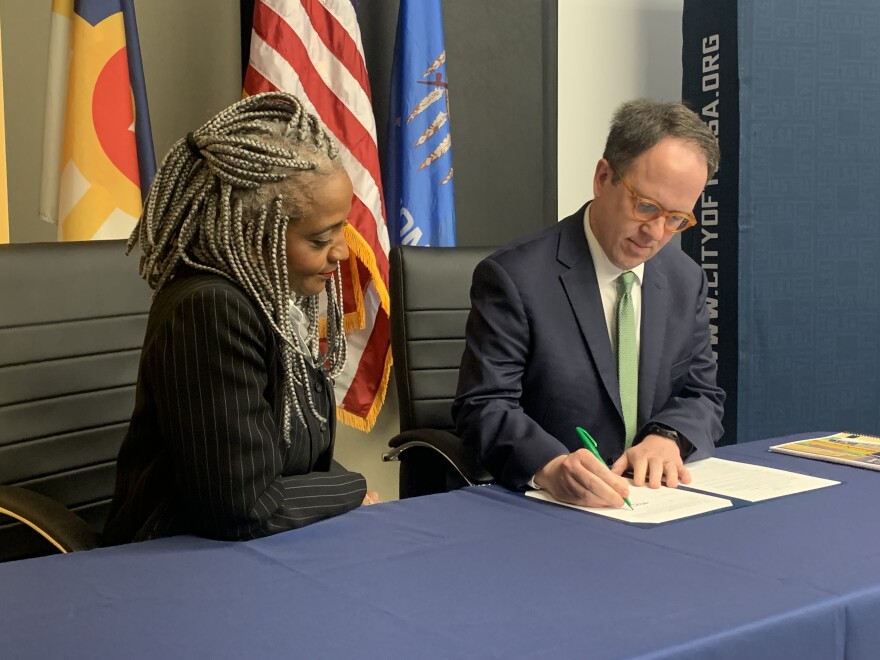City Council District 7 candidate Eddie Huff claims a term used to avoid liability for the 1921 Tulsa Race Massacre is the best way to describe the deadly event.
In an interview with Public Radio Tulsa, Huff called the massacre the “Tulsa Race Riot,” a term scholars say was used by politicians and insurance companies to avoid rebuilding the Greenwood neighborhood. A white mob killed as many as 300 people, destroyed prominent businesses, and leveled more than 1,000 homes in the area known as Black Wall Street during the massacre.
“They’ve used the word ‘massacre’ to try to make it sound worse,” said Huff.
Huff acknowledged the event was “a terrible thing” but said Tulsa needs to “move on.”
Huff’s remarks came while discussing the Beyond Apology Commission, a panel created in August to explore how to give reparations to massacre descendants and north Tulsans. Huff’s opponent, Lori Decter Wright, helped form the commission and assisted in compiling a report of the same name.
The report recommends education as the first form of reparations Tulsans want to see in connection with the massacre, followed by direct financial compensation, community and economic development, and housing. The Beyond Apology Commission announced earlier this month it will focus on housing because Tulsans in 2023 voted to set aside money for citywide housing initiatives.
The commission was established following a 2021 resolution in which the city formally apologized for its role in the massacre. Mayor G.T. Bynum has supported the commission but opposed a lawsuit requesting financial compensation for the remaining massacre survivors.

Huff claimed the commission will give to north Tulsans who weren’t directly impacted by the massacre.
“You can’t just take people’s money and be benevolent and give it to an entity that you had nothing to do with, and you don’t know if they had anything to do with it,” he said.
Huff also pointed out that Black Wall Street was rebuilt after the massacre. According to the National Endowment for the Humanities, more than 200 Black businesses operated in the district by 1942, despite the city complicating rebuilding efforts. The construction of Interstate 244 through Greenwood Avenue in the 1960s and 1970s — which former Tulsa mayor Robert LaFortune assisted — is commonly credited with the modern decline of the area.
In a written statement in response to Huff, Decter Wright claimed her opponent has made “offensive and controversial statements for decades.”
“His efforts to carry that into our city government are unsurprising, but also unwelcome as the majority of Tulsans have soundly rejected each and every extremist candidate or elected official who has attempted to make a mockery of the important issues we face and the high-level policy work necessary to govern a city our size,” her statement reads.

An insurance agent and Christian missionary, Huff says he’ll focus on infrastructure spending, hiring more police officers and building relationships with surrounding suburbs to grow the metro area. He also believes Tulsa should divert its focus from downtown and the arts, and leave homeless services to nonprofits.
As a city councilor, Decter Wright led the charge to allow city housing inspectors to enforce code at a greater capacity and amended the city’s right-of-way ordinance to let police fine up to $100 people blocking walkways. She has also advocated for more affordable housing in Tulsa to address homelessness and the city’s housing gap.




